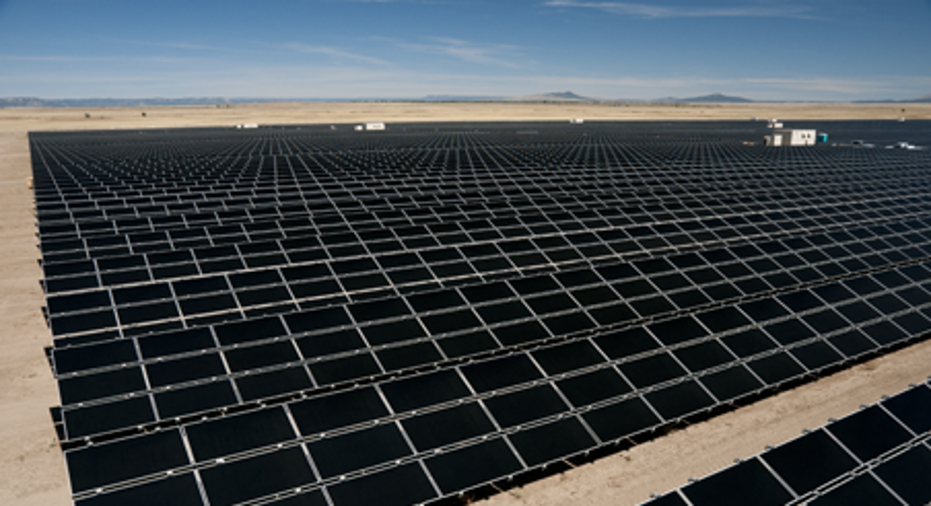First Solar, Inc.'s Worst Moves in 2015

Image source: First Solar.
2015 was a great year for First Solar investors. The stock is up over 50% with one day left in trading, as of this writing, and the company made some positive steps in improving its competitive position long term.
But First Solar has also left some opportunities on the table, which might end up being its biggest mistakes of the year. Here are two instances where First Solar could have generated more profit for investors long term.
Helping others build solar power systems When First Solar announced 2016 guidance, it said gross margin would be 16% to 18%, and earnings would be $4.00 to $4.50 per share. That was down from gross margin of 24% to 25% and earnings of $4.30 to $4.50 in 2015.
A major driver of the decline is the systems that First Solar is providing panels for and/or engineering, but for which it is not performing the development from a financial perspective. Management's argument for doing this is that it's lower risk than full development and generates a higher margin in absolute dollars, even if the gross margin percentage is lower than it would be if First Solar were the developer. Another example of this strategy is a long-standing relationship with Strata Solar, which is buying 400 MW in solar panels in 2017 to 2018 and will have bought 1 GW of modules from the company.
The question is: Why would you help someone else develop and build solar plants when building solar plants is your bread-and-butter business? Why not develop projects yourself when there are so many financing options available, including an estimated $1.3 billion to $1.4 billion in net cash on the balance sheet to end the year?
One answer could be the risk associated with developing projects and getting financing. The other is First Solar's uncertainty about the solar investment tax credit's expiration. It wasn't until early December that we knew the ITC would be extended, so signing lower-risk supply agreements may have been a good idea. But in taking lower-margin module sales, management is certainly giving up potential profits for investors, and if First Solar were as confident in its technology and cost structure as I think it should be, it should be building as much as it can by itself.
Looking beyond today The energy industry is changing rapidly, and First Solar is driving some of that change. Solar energy is now more cost-competitive than ever with fossil fuel, but it's an intermittent source of energy, producing power while it's sunny, less while it's cloudy, and nothing at night. This creates a stress on the grid that will require energy storage or management to work with the grid as we know it today.
Companies like SolarCity and SunPower are adapting to this reality by buying or partnering with companies that perform energy storage or management. First Solar has done far less to adapt to new technologies that it knows will be necessary. In fact, outside of a small partnership to help Caterpillar develop microgrids, there doesn't seem to be much next-generation development going on at First Solar.
I think this will end up being another lost opportunity as the energy industry changes. First Solar could be a leader in power to gas, large-scale energy storage, or EV charging infrastructure. I think investors would like to see a little foresight when it comes to these kinds of new technologies.
First Solar won't need the same technologies as some competitors, particularly in the residential solar space, where the revenue-generating structures aren't in danger. But utility-scale projects will be under pressure as they take over more of the grid and the value at peak solar hours, becomes less valuable to utilities. That means First Solar needs to find ways to add more value to the grid and consumers, and I think it should be doing more to develop those technologies or partnerships today.
The article First Solar, Inc.'s Worst Moves in 2015 originally appeared on Fool.com.
Travis Hoium owns shares of First Solar and SunPower. The Motley Fool owns shares of and recommends SolarCity. Try any of our Foolish newsletter services free for 30 days. We Fools may not all hold the same opinions, but we all believe that considering a diverse range of insights makes us better investors. The Motley Fool has a disclosure policy.
Copyright 1995 - 2016 The Motley Fool, LLC. All rights reserved. The Motley Fool has a disclosure policy.



















